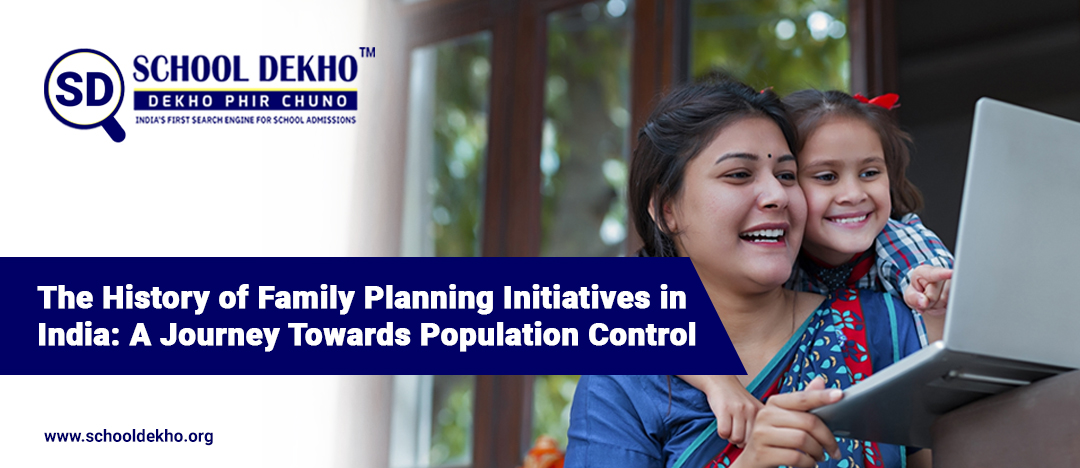The History of Family Planning Initiatives in India: A Journey Towards Population Control

India, with its rich history and diverse culture, has also had a remarkable journey in the realm of family planning and population control. For students, understanding this history is not just a lesson in demographics but also an insight into the complexities of public policy, socio-cultural dynamics, and the evolving concept of individual rights. Let's take a journey through the history of family planning initiatives in India.
Pre-Independence Era: Early Beginnings
Family planning initiatives in India have roots that date back to the pre-independence era. In the 1920s and 1930s, pioneers like M.S. Swaminathan and B.R. Rajam began advocating for family planning and population control. However, these efforts remained largely localized and fragmented.
Post-Independence India: The First Five-Year Plans
With independence in 1947, India's leadership recognized the need for organized family planning efforts to control the burgeoning population. The First Five-Year Plan (1951-1956) laid the foundation for the formal family planning program, with a focus on maternal and child health. The government launched the Maternal and Child Health program in 1952, which included family planning as an integral component.
The 1970s: The Emergence of Sterilization
The early 1970s marked a significant turning point in India's family planning history. The government adopted a more aggressive approach, emphasizing sterilization as the primary means of population control. This period saw a rapid increase in sterilization camps and incentives for individuals who underwent the procedure. Unfortunately, this approach faced criticism for its coercive practices and inadequate informed consent.
The 1980s: A Shift in Focus
In response to concerns and criticism, the 1980s witnessed a shift in India's family planning approach. The government moved away from a focus solely on sterilization and embraced a broader reproductive health agenda. Contraceptive choices were diversified, and efforts were made to improve maternal and child health services.
The 1990s and Beyond: Expanding Access and Rights
In the 1990s and early 2000s, India continued to expand access to family planning services, with a focus on rural and underserved areas. The program also emphasized women's reproductive rights and autonomy, moving towards a more informed and voluntary approach.
The Present: A Comprehensive Approach
Today, India's family planning program takes a more comprehensive approach. It includes a wide range of contraceptive choices, awareness programs, and efforts to improve maternal and child health. The government's emphasis is on ensuring that family planning is a matter of choice, not coercion, and that individuals have access to high-quality services.
Challenges and the Way Forward
While India's family planning journey has seen significant progress, it still faces numerous challenges. Population growth remains a concern, and there are disparities in access to family planning services, especially in rural areas. Moreover, the cultural and social dimensions of family planning, including gender equality and awareness, continue to be critical aspects of the discourse.
As students, understanding this history provides valuable insights into the complexities of population control efforts. It also underscores the importance of balancing demographic concerns with individual rights and choices. The future of family planning in India lies in continuing to expand access, promoting awareness, and ensuring that individuals can make informed decisions about their reproductive health.
Contact with Us
Call: 1800 - 2588 - 074
Mail: info@schooldekho.org
Student’s Best Education Portal | School Dekho | India's First School Search Engine | Best Schools Near Me | Find Schools Near Me | Dekho Phir Chuno
#dekhophirchuno






